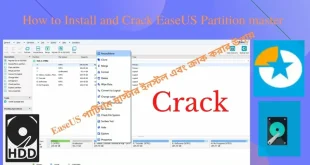One of the few things that act as a common thread in an increasingly varying world is technology. With the rising application of technology across industries, everyone is on a level playing field.
For instance, irrespective of one’s income level and socio-economic circumstances, there is easy access to services such as online food ordering or bank account opening.
Amongst the industries that technology has markedly revolutionised is trading in the stock market. In this article, we shall delve into
- What is online trading
- Prerequisites for online trading, including trading account and demat account
- Major advantages of online trading
What is online trading?
When you purchase and sell securities in the stock market online, the process is referred to as online trading. Since electronic trading has replaced the physical trading and settlement of securities, the entire process has become significantly easier, quicker, safer, and cheaper.
In order to carry out online trading in India, you must be an Indian national (resident or non-resident), and have a functional trading account, demat account, and bank account.
A trading account is the conduit through which you can trade in securities in the stock market. Every time you place a buy or sell order for securities, the transaction goes through your trading account.
In addition to a trading account, you also require a demat account where your securities are digitally stored post the settlement of transactions.
Now that we have discussed what online trading is, let us turn our attention to the key advantages of online trading in India.
Benefits Of Online Trading In India
The process of online trading is characterised by its user-friendly access and interface. You can trade in securities online through the registered website or mobile application of your depository participant (DP).
Not only is online trading easily accessible and cost-effective, it is a mechanism through which you can make data-driven and analytical investment decisions without the influence of any intermediaries. Here are the seven major advantages of online trading in India.
- Ease of access
The foremost advantage of online trading is the ease of access for investors. All you need is a functional trading and demat accounts, and a stable Internet connection, and you can place buy and sell orders in the market (while adhering to the applicable margin requirements).
- Time saving
Online trading has effectively replaced the physical trading of securities which entailed weeks for the settlement of transactions.
Now transactions are settled in a few days (depending upon the securities) and the entire process is swifter and more seamless.
- Access to the latest market information
Another striking advantage of online trading is that the latest information about the market is easily available for investors to peruse. You can check price movements, volumes, and other important metrics on a real-time basis.
- Transparent process
Since online trading happens on a regulated digital platform, everything, including the prices of securities and the status of trade positions is transparent, thereby making the process largely safe.
- Visibility and control
With an online trading account and demat account and your DP’s official website/ mobile application, you get complete visibility on your investment portfolio at any given point in time. You can check the total value of the investment, bifurcation by asset classes, gain/ loss, etc., and make investment decisions according to said information and your financial goals.
- Informed decision making
With the availability of information on the latest market movements, periodic patterns, etc., you can be well placed to decide which securities to hold and which to sell/ buy.
- No influence of intermediaries
The availability of real-time market information and the analysis of patterns and potential future movements based on said patterns can ensure that you are not reliant on any intermediaries, for instance, brokers, to make your investment decisions.
To sum it up
From savings in terms of cost and time to the potential for informed decision-making, there is no dearth of advantages of online trading.
As long as you have clarity on your investment goals, risk appetite, and investment timeline, and keep the login information for your trading account and demat account confidential, you are likely to have a safe and transparent trading experience.
Frequently Asked Questions
1. What is online trading, and how does it work in India?
A. Online trading refers to buying and selling financial instruments like stocks, commodities, and currencies through internet-based platforms. In India, online trading works through brokerage firms that provide online trading platforms where investors can place orders electronically.
2. What are the requirements to start online trading in India?
A. To start online trading in India, you need to open a demat account, a trading account, and link them to a bank account. You also need a PAN card, Aadhaar card, and other KYC documents as per the regulatory requirements.
3. Which are the best online trading platforms in India?
A. Some popular online trading platforms in India include Zerodha, Upstox, ICICI Direct, HDFC Securities, and Sharekhan. The best platform for you depends on your trading preferences, fees, and features.
4. How do I choose the right brokerage for online trading?
A. Consider factors like brokerage fees, trading platform features, customer service, research tools, and user reviews when choosing a brokerage for online trading.
5. What are the risks associated with online trading?
A. Risks of online trading include market volatility, loss of capital, technological glitches, regulatory changes, and emotional decision-making. It’s essential to have a risk management strategy in place.
6. Can I trade in stocks, commodities, and currencies online?
A. Yes, you can trade in stocks, commodities (like gold, silver, crude oil), and currencies (forex trading) online through suitable brokerage platforms.
7. What are the different types of orders I can place in online trading?
A. Common order types in trading include market orders (buy/sell at the current market price), limit orders (buy/sell at a specific price), stop-loss orders (to limit losses), and trailing stop orders (to follow price movements).
 Daily Blogger News Stay updated with the latest trends and insights. Your reliable source for daily updates and information.
Daily Blogger News Stay updated with the latest trends and insights. Your reliable source for daily updates and information.







